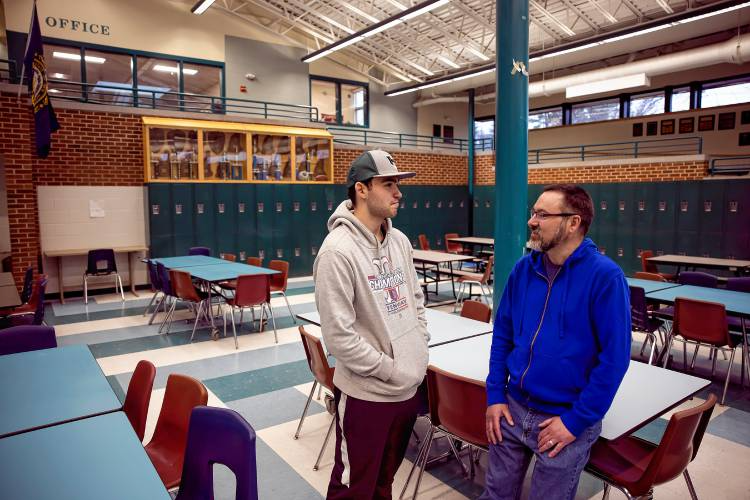On Monday night, the College of Liberal Arts (COLA) at the University of New Hampshire (UNH) held one of two planned lectures on the 2020 election as part of the Rutman Distinguished Lecture Series on the American Presidency.
The first lecture, titled “The 2020 Election: What Might Happen and What it Might Mean”, was moderated by award-winning journalist and filmmaker Callie Crossley, from Boston, M.A. It also featured former Boston city counselor, mayoral candidate, and UNH ’99 alumnus Tito Jackson; UNH assistant professor of political science Emily Baer; and UNH history professor Kurk Dorsey.
Jackson, Baer, and Dorsey answered questions from Crossley throughout the hour-long lecture, with topics ranging from the Supreme Court, the coronavirus (COVID-19) and health care, the economy, and former Vice President Joe Biden and President Donald Trump.
Crossley opened the lecture with polling numbers from the PEW Research Center on some of these hot button issues.
Taken back in August, the polls indicated that 79% of Americans list the economy as their top priority, with health care coming in second at 68%, the appointment of a new justice to the Supreme Court third at 64%, and concerns over the coronavirus (COVID-19) coming in fourth at 62%.
Polling included data split between supporters of Trump and Biden on the issues as well, with the economy being the top priority of Trump supporters at 88%, and health care at number one amongst Biden supporters, with 84%.
“As we’ve heard in the Supreme Court hearings, and all along [the campaign trail], the Democrats are really hitting hard on health care, and the coronavirus outbreak, as a central piece [of their strategy],” Crossley said. “Is this going to be a winning issue for them as it was in 2018?”
Dorsey responded in agreement, saying, “I think that’s why they’re trying to make the whole Supreme Court nomination fight about getting rid of Obamacare.”
“I think Obamacare only keeps getting more popular as, for instance, people lose jobs, and they realize that the idea of having health care through your employer is going away, probably. I think President Trump continued to undermine his own campaign by allowing the [Supreme Court] debate to focus on the Obamacare law right before the election,” Dorsey continued.
“This is why the polls seem to be moving half a point a day in favor of Biden,” he said.
Baer agreed as well, indicating that “over 40% of congressional ads in 2018 focused on health care, and Republicans who tried to repeal and replace Obamacare were placed on the offensive.”
“I would absolutely expect both Joe Biden and congressional Democrats to focus on this issue, and it is overwhelmingly a winning issue for them,” Baer said.
Jackson pushed the conversation a bit further, saying “I believe that running on this health care issue as a base, and then connecting it back around to issues of loss in jobs and the issues we’re having in the economy is absolutely a winning strategy.”
Crossley stated that the August polls did not mention climate change at all, however a new set of polls released last week did. The numbers showed that seven out of ten Biden supporters consider climate change very important, while only one in ten Trump supporters do.
“Think about that,” she said.
Dorsey drew contrasts between past and modern-day Republican leadership on climate change, saying, “We can look to Teddy Roosevelt or even [Richard] Nixon who understood that environmental activism is both good for the country and good politics.”
“There’s been this general sense that the science behind climate change and evolution is really all fiction,” he continued, “and it ties in with the ways that which social media has divided this country, into ‘do you get your source of information from one place or one place else?’”
“It’s really a striking shift,” he concluded.
Crossley indicated that while members of congress may not be open to working with one another on the issue of climate change, both younger liberals and conservatives view the issue differently.
After the lecture came a brief Q and A session with the audience before the panelists and moderator signed off.
The second lecture in the series titled “The 2020 Election: What Happened and Why” is on Tuesday, Nov. 10, from 6:30 p.m. to 7:30 p.m., and is open to the public on Zoom.




















